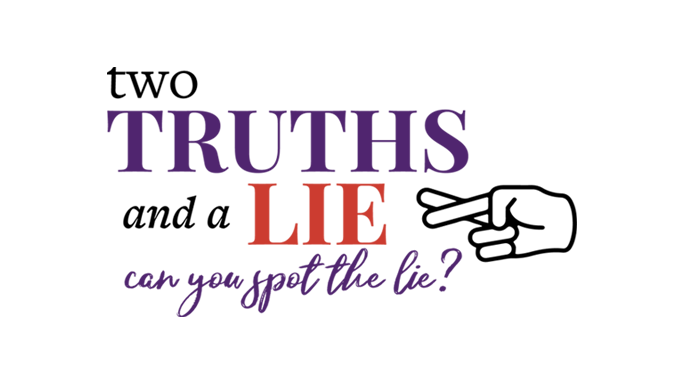Everyone loves the party game/icebreaker “two truths and a lie.”
Can you identify which of the following is NOT true about the measles vaccine?
A: The measles (MMR—Measles, Mumps, Rubella) vaccine is safe.
B: The MMR vaccine does not cause autism.
C: If your child is vaccinated, unvaccinated people can’t hurt them or put them in danger of contracting an infectious disease.
Let’s take these statements one at a time:
A: TRUTH!
The science and medical communities worldwide agree that vaccines are safe. Multiple studies from both U.S. government agencies as well as international, independent researchers have found vaccines to be safe.
In the latest study, Danish researchers at Statens Serum Institute in Copenhagen examined 657,461 Danish children born between 1999 and 2010 and found that there’s no link between being vaccinated against measles, mumps, and rubella and developing autism. This study echoes decades of similar studies, which also show no connection between the MMR vaccine and autism.
B: TRUTH!
The American Academy of Pediatrics, the American Medical Association and the Autism Society of America have all denounced any claims that the MMR vaccine causes Autism Spectrum Disorder.
The myth of an MMR-autism connection began in the mid-1990s, when a British doctor named Andrew Wakefield claimed he’d found a link between autism and children who had received the MMR vaccine. Yet, his study was officially retracted the doctor later lost his medical license because he “…acted and irresponsibly” and that he “…brought the medical profession into disrepute.”
Despite this, the Wakefield study continues to be cited proof that the MMR vaccine causes autism, which has resulted in fewer parents vaccinating their kids.
This dip in vaccination rates has damaged the nation’s “herd immunity,” which occurs when a large portion of the population is vaccinated, thereby hampering the diseases’ ability to find a host. With measles, herd immunity is only achieved when at least 90-95 percent of the population is vaccinated. Without robust herd immunity, certain individuals who cannot receive vaccinations (such as newborns) will be left vulnerable to these dangerous diseases.
C: LIE.
Vaccinating doesn’t guarantee that a person won’t contract an infectious disease. One dose of MMR vaccine is 93 percent effective against measles, 78 percent effective against mumps, and 97 percent effective against rubella. Two doses of MMR vaccine are 97 percent effective against measles and 88 percent effective against mumps.
Because many parents delay or forget to get their children a second dose of the MMR vaccine, infection can happen if a vaccinated person comes into contact with an unvaccinated infected individual. Even those who receive two doses are still vulnerable.
In addition, certain people can’t be vaccinated. Newborns, people with allergies, and the immuno-compromised (such as cancer patients) cannot receive certain vaccines, leaving them vulnerable to contracting infectious diseases, like measles.
Measles is extremely contagious. It is easier to contract than Ebola, tuberculosis or influenza. Measles can linger in the air or on surfaces for up to two hours where an infected person coughed or sneezed. Infected individuals won’t show any signs for days, and the early symptoms can easily be dismissed as a simple cold.
Measles is a serious, deadly disease. According to the CDC, for every 1,000 Americans who get measles, one or two will die. According to the WHO, in 2017, the most recent year for which estimates are available, measles caused more than 100,000 deaths worldwide, mostly in young children. Additional Risks of Exposure: Measles can cause encephalitis, which can lead to swelling around the brain, causing seizures, blindness, deafness, permanent brain damage, and other disabilities.
For more information about vaccines and measles outbreaks, check out this policy focus.

